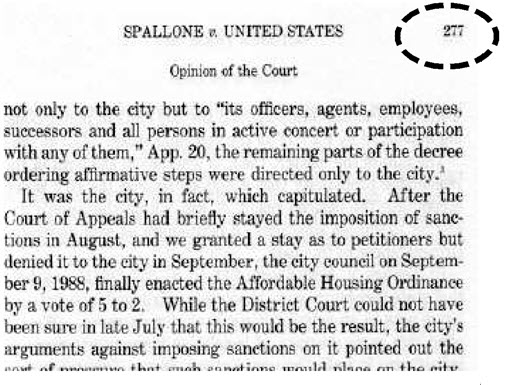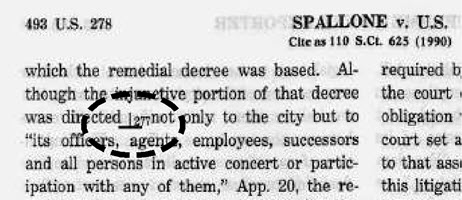| Volume II, Chapter §4.4 Citing Authority |
|
Star Pagination
Lecture Notes . . .About Star Pagination The best way to understand Star Pagination, however, is to go find it in the law library. Try this: • Go to the law library. • Pull out any volume of the Supreme Court Reporter (by West Publishing Company). • Turn to any case in the volume. • Find a sentence you want to quote (theoretically) a few pages into the case. • Somewhere above the sentence you are quoting, find the Star Pagination notation.
|
 |
Demonstration Advanced Citation Demonstration |
Paralegal Perspectives . . .
STAR PAGINATION
You won't use star pagination all the time, but it's a great tool when you are in a bind to write a memo or other legal document and don't have access to the official cite.
The most difficult things about star pagination are:
-Not every unofficial publication uses star pagination. In fact, most do not.
-The symbol used to indicate where a page begins differs not only from publication to publication, but it also depends on how recent the publication is. Sometimes the page number is surrounded by brackets, sometimes by asterisks, and sometimes a strange little upside down "T-bar" is used. So be flexible. After you understand its function, it becomes less confusing.
Also, we have concentrated here on star pagination in law books in the library. However, as shown in the examples in this section in the manual, star pagination is also provided by Westlaw and Lexis. Knowing what those strange numbers are that seem to appear for no reason will help you feel more comfortable in the online research environment. And knowing how to star paginate will help you in creating full Bluebook-appropriate citations.
Think about this. If star pagination was not available and you needed to quote to a specific page in the official (for pinpoint purposes), you would need to find the official case and scan through it hoping to find where your quote appeared. That is not nearly as efficient as using star pagination to do the work for you.
Commonly Asked Questions. . .
(*Click here if this tool does not work properly - Open in new window)





